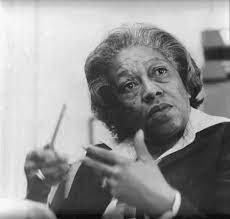April 27, 2023 African Impact on Colonial Agriculture
The contribution Africans may have made to the development of American staple crop development is a contested (and contentious) topic. It has been most thoroughly explored in recent debates over what scholars call the "Black Rice" hypothesis, which maintains that Africans from rice-growing regions of West Africa transferred "an entire cultural system, from production to consumption" to rice-growing areas in South Carolina, along with South America. Types of seed, sowing skills, irrigation technologies, and processing techniques were among the expertise enslaved peoples contributed to wet-land rice farming. Supporters of the Black Rice hypothesis also maintain that Africans "tutored planters in growing the crop." These planters, it is further argued, learned by the early 1700s of the ethnic groups and geographical areas of West Africa that specialized in growing rice on wetlands, and especially about the women who had gendered knowledge of sowing, milling, winnowing, and cooking the grain. They were intent on obtaining slaves from these regions and were willing to pay higher prices for women than were slave buyers who raised other crops.
On the whole, slave owners valued Africans' agricultural expertise. In the 1610s English settlers on Bermuda turned to Africans captured from Spanish colonies to teach them how to grow tobacco in quantity and for the technique of processing it in rolls. In the 1640s Virginia Governor William Berkeley consulted Africans when experimenting with rice. Once European settlers developed the basics of the various staple crop and industrial regimes, however, slaveholders seemed to cease recognizing African contributions aside from labor power.
Arguments for significant African agency based on planter preferences for Africans from rice-growing regions are problematic. In the case of South Carolina, the proportion of slaves brought from rice growing areas of Upper Guinea did not differ significantly from the proportion of slaves from this region delivered to other colonies producing other staples. Half or more of new Africans entering South Carolina after 1750 did indeed come from rice-growing areas, but by then South Carolina planters had already developed a distinctive Carolina rice complex based more on European and colonial rather than African technologies. Moreover, enslaved women in South Carolina were sold at lower prices than were men, just as they were in all other colonies. The data on prices does not support the contention that rice planters were willing to pay a higher premium for female workers from Upper Guinea with expertise in rice-growing and processing.
Similar connections between African expertise and American crops and industries have been posited for tobacco, indigo, gold mining, and cattle herding, while a generalized expertise is claimed for slash and burn forest clearing. Although arguments for transfers of entire cropping or industrial systems have been seriously challenged, that slaves lacked agency in growing crops, adapting familiar technologies, and in controlling the pace of their work is equally improbable. The unintended or coerced contributions of both indigenous residents and of transplanted Africans remain a fruitful topic for further research.
I was researching a few days ago & got to thinking that Black slaves not only were never thanked, they were never recognized for their expertise, & yet it is them, all them, that enabled the success of the White farm owner.
.jpeg)



Comments
Post a Comment